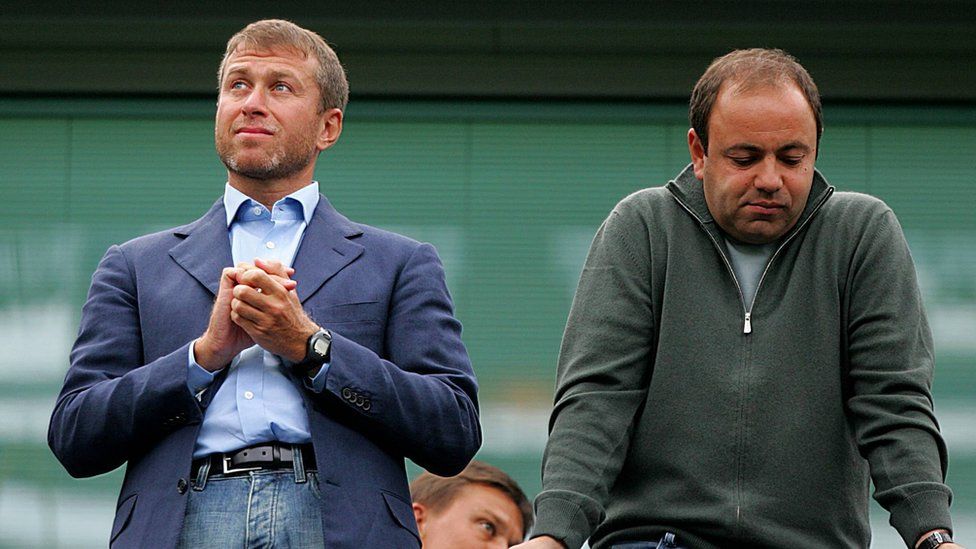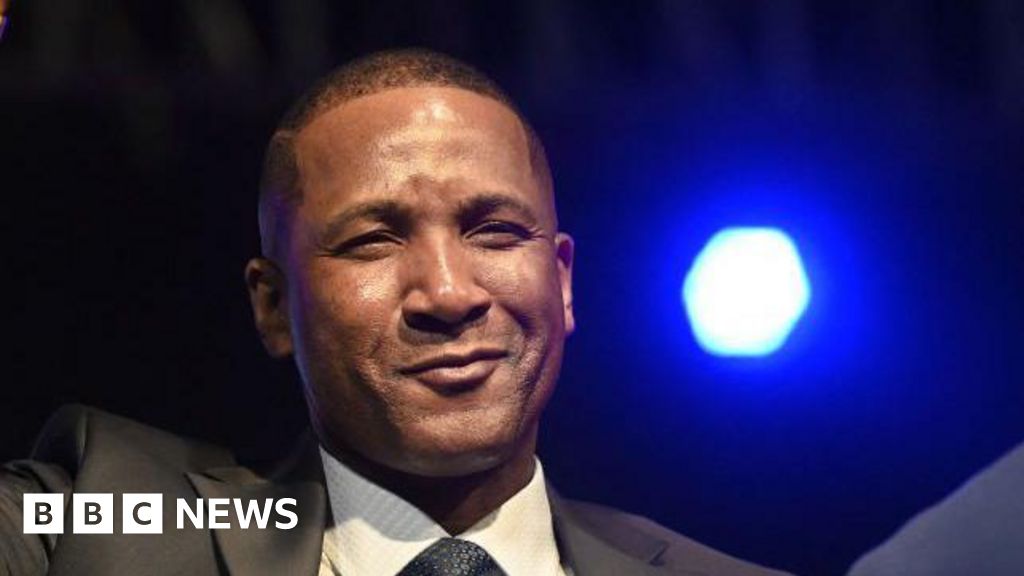ARTICLE AD BOX
 Image source, PA Media
Image source, PA Media
Eugene Shvidler (right) was sanctioned over ties with longstanding business partner Roman Abramovich
A Russian-born billionaire oil tycoon is challenging the UK government's decision to freeze his assets.
Eugene Shvidler had two of his private jets, worth up to $60m (£45m), detained last March.
He was sanctioned over ties with ex-Chelsea FC owner Roman Abramovich and a mining company operating in Russia.
In the first such case of its kind at the High Court, the 59-year-old, who moved to the US in 1989, wants the sanctions lifted.
Lord Anderson KC, representing Mr Shvidler, said there could be no doubt his client was "sought to be used as a poster boy for Russian sanctions" in light of comments made by ministers at the time his planes were seized.
He added that other similar challenges are understood to be waiting behind Mr Shvidler's case, which is due to be ruled on at a later date.
Mr Shvidler is seeking a declaration that his designation under post-Brexit regulations on sanctions was unlawful, and an order quashing the designation.
Lord Anderson said the designation had destroyed Mr Shvidler's ability to deal with his assets and conduct his business, disrupted his life and the lives of his family, deprived employees of their livelihoods and shattered his reputation.
He said his client has no relationship with Russian President Vladimir Putin nor any influence on Russian policy - and had spoken out against the war in Ukraine.
He added that England had been Mr Shvidler's main home since 2004 and his five children were all British citizens at UK schools - although two "were required to leave those schools" because of the sanctions.
Mr Shvidler has demonstrated his commitment to the UK through philanthropy, including funding a library and scholarships for disadvantaged young people, Lord Anderson added.
Opposing the challenge, government lawyers argued the decision to impose sanctions was neither disproportionate nor discriminatory and asked the court to dismiss the case.

 1 year ago
21
1 year ago
21








 English (US)
English (US)